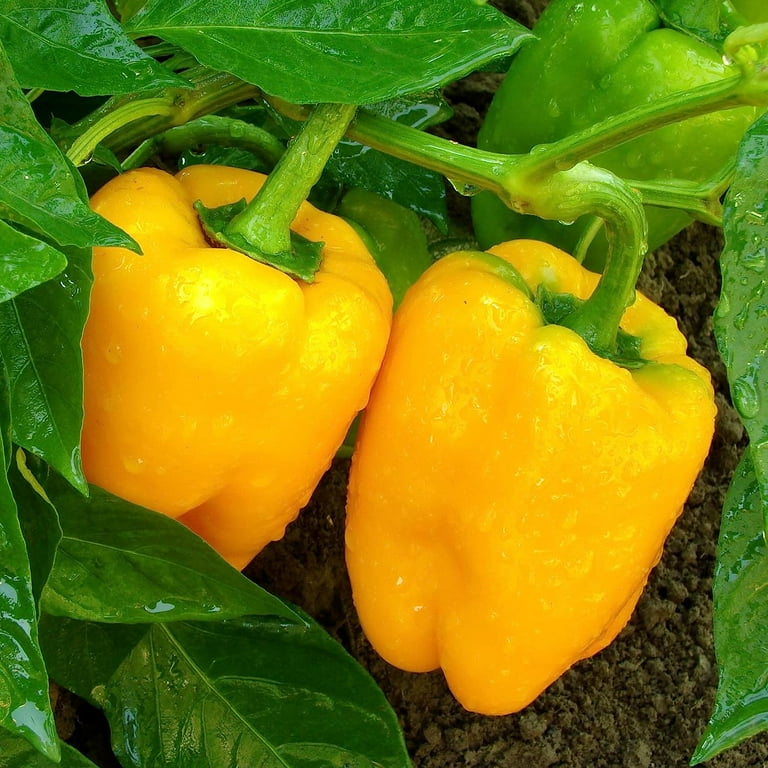Best Fertilizers for Peppers: Increase Growth and Flavor Naturally
Best Fertilizers for Peppers: Increase Growth and Flavor Naturally
Blog Article
Organic Vs. Synthetic Fertilizers: Which Is Best for Supporting Healthy And Balanced Pepper Plants?
In the world of supporting healthy pepper plants, the option between artificial and natural plant foods stands as an essential choice with significant effects. While both choices purpose to give crucial nutrients to sustain plant growth, the nuances of their influence on the dirt, plant wellness, and the atmosphere spark a debate that mirrors throughout the horticulture neighborhood. Comprehending the unique advantages and possible mistakes of each fertilizer kind is crucial for pepper farmers looking for to enhance their returns while maintaining an eco-conscious and lasting method.
Benefits of Organic Plant Foods
Organic plant foods offer a lasting and environmentally-friendly method to beneficial pepper plants, supplying important nutrients without the use of artificial chemicals. These natural plant foods are originated from organic resources such as garden compost, manure, bone meal, and algae, promoting dirt health and wellness and biodiversity. Unlike synthetic plant foods, organic alternatives release nutrients slowly, ensuring a well balanced and steady supply for pepper plants to prosper.
One considerable advantage of organic plant foods is their capacity to improve dirt structure and water retention. By improving dirt health and wellness, organic plant foods promote helpful microbial activity, which helps in nutrient uptake by pepper plants. In addition, organic plant foods reduce the danger of chemical run-off, protecting water sources from contamination and guarding the environment.
Moreover, natural plant foods contribute to long-lasting dirt fertility by advertising the growth of valuable soil microorganisms. These microorganisms assist damage down organic matter, releasing nutrients in a type that is quickly obtainable to pepper plants. best fertilizers for peppers. By fostering a healthy soil community, organic plant foods sustain lasting pepper growing techniques that profit both plants and the setting
Downsides of Synthetic Plant Foods
Artificial fertilizers, in contrast to their natural counterparts, position various negative aspects when utilized to nourish pepper plants, impacting both plant wellness and ecological sustainability. One major downside of artificial fertilizers is their tendency to seep nutrients from the soil quickly.
In addition, the overuse of artificial plant foods can contribute to water air pollution. Excess plant foods not absorbed by plants can clean away into water bodies, leading to eutrophication, where algae blossoms diminish oxygen levels in the water, damaging water life. Synthetic fertilizers are typically acquired from non-renewable sources, such as fossil fuels, contributing to carbon exhausts and environmental degradation throughout their production.
Nutrient Absorption Contrast
Reliable nutrient absorption plays a crucial duty in the overall health and development of pepper plants. When contrasting artificial and organic fertilizers in terms of nutrient absorption, natural fertilizers have the benefit of supplying an extra balanced and slow-release resource of nutrients (best fertilizers for peppers). Organic fertilizers contain a selection of macro and micronutrients that are not only valuable for the plants however also advertise healthy soil microbial activity, which aids in nutrient uptake. On the various other hand, artificial plant foods commonly supply a fast release click for source of nutrients, which can cause leaching and overflow, causing lower nutrient absorption prices by the plants.
Moreover, natural plant foods improve soil structure and water retention capability, enabling pepper plants to accessibility nutrients extra efficiently. This better soil quality facilitates origin advancement, enabling far better nutrient absorption. Synthetic plant foods, although at first improving plant development due to their high nutrient focus, might impede long-lasting nutrient absorption by degrading dirt wellness with time.
Ecological Effect Considerations

On the various other hand, artificial plant foods, although often more promptly readily available and focused to plants, can have detrimental results on the setting if not applied appropriately (best fertilizers for peppers). Their manufacturing calls for high energy inputs, leading to greenhouse gas discharges and contributing to climate change. Moreover, the drainage of excess artificial fertilizers can pollute water sources, leading to eutrophication and damaging marine environments.
Finest Plant Food Practices for Peppers
To accomplish this, it is crucial to adhere to ideal fertilizer practices tailored to the particular requirements of pepper plants. One vital practice is to perform a soil examination before applying any type of plant foods.
One more crucial technique is to fertilize pepper plants at the correct time. Normally, peppers take advantage of getting fertilizer at growing and after that once again when they start to blossom. Over-fertilizing can bring about nutrition discrepancies and hurt the plants, so it is vital to follow advised application rates.
Additionally, picking a well balanced fertilizer with an NPK ratio that suits pepper plants' needs is basic. Organic plant foods, such as compost or manure, can be superb options as they release nutrients gradually and enhance soil framework in time. However, artificial fertilizers can provide a fast nutrient boost when required. Eventually, combining synthetic and natural fertilizers judiciously can aid nurture healthy and balanced pepper plants while reducing ecological effect.
Verdict

Organic plant foods offer an environmentally-friendly and sustainable strategy to nourishing pepper plants, giving vital nutrients without the usage of synthetic chemicals. Unlike synthetic plant foods, organic choices launch nutrients slowly, making certain a balanced and consistent supply for pepper plants to thrive.
Artificial plant foods, in contrast to their natural counterparts, present numerous disadvantages when made use of to nourish pepper plants, affecting both plant wellness and environmental sustainability. When comparing natural and artificial fertilizers in terms of nutrient absorption, organic plant foods have the benefit of offering an extra balanced and slow-release resource of nutrients.In addition, organic fertilizers improve dirt framework and water retention capacity, enabling pepper plants to gain access to nutrients extra efficiently.
Report this page